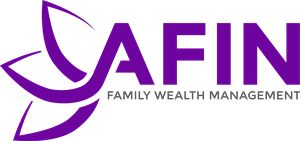
Are SEP IRAs or Cash Balance Plans right for my business?
If you're like many small business owners, running your own business is an all-consuming endeavor.
In the face of everyday demands, choosing a retirement plan for your business can become a casualty. The idea of establishing a plan could evoke worries about complicated reporting and administration.
If you plan to retire in your lifetime, you will need a cash flow to buy groceries, pay your property taxes, go to your doctor, etc. In the US, there is some help in form of social security, which provides the most basic retirement plan. However, if you want to sustain your current lifestyle or live even better in retirement, social security will not be enough. A retirement plan can help you bridge the gap between your ambitions and the money you will need to lead your day-to-day life. Essentially, retirement planning is about efficiently handling taxation during both the time you are employed and when you stop working. It all begins with choosing the correct plan for your situation.
The major plans that are available to everyone are Traditional and Roth IRAs. If you are an employer, you have the ability to create other qualified retirement plans- some examples are 401(k), 403(b), profit-sharing plans, and cash balance plans. Depending on the person's situation, advisors can help pick the best plan to accommodate the individual's needs.
The main difference between Traditional and Roth IRA is that you take tax deduction right now in Traditional IRA but pay taxes when you retire. Money grows in your account in a tax-deferred manner during your working, and is taxed at normal income level (ideally in a lower tax bracket) when withdrawn in retirement. You can control how much income you want to receive in the future by controlling withdrawal levels, which allows for the right tax planning strategies. Roth IRA works precisely in the opposite manner; you pay taxes right now, so you do not have to pay taxes in retirement. Which plan is better for an individual depends on their personal situation, and financial planning advisors can help find the right balance.
Most retirement plans are built to be employer-sponsored and benefit employees as well as business owners. Simple IRAs and SEP IRAs contributions are based on a percentage of income. The owners of the company make contributions and proportionately have to put in the same percentage of income for all eligible employees. The next level of complexity is to use plans that require employee contributions such as 401(k)s or 403(b)s. These plans are generally made available to all qualified employees. Contributions are not mandatory but there is no requirement for the sponsoring company to provide matching contributions to those who do not contribute to the 401(k). Companies can go even one step further to provide profit sharing and even build defined benefit plans like Cash Balance plans to allow for larger tax deferred contributions.
There are several benefits for employers to include their employees in retirement plans: employee retention, tax benefits for the company, and overall happier employees. Most business owners worry that employees will take the money and leave, but in reality, the companies can attach strings to the money they contributed, to further the bond an employee has to their employer. There are multiple ways to set up a plan and vesting schedules, matching contributions, investment choices, and employee access are all considerations one should review with an advisor to make sure they fit the plan’s goals.
Article is an excerpt from an Interview with Colin Kelty, President & Senior Financial Advisor, and Michael Goldenberg, CEO, Co-Founder, & Senior Financial Advisor at AFIN Family Wealth Management*.
Author: Mahym Gulova
*Securities and insurance products are offered through Cetera Investment Services LLC (doing insurance business in CA as CFGIS Insurance Agency), member FINRA/SIPC. Advisory services are offered through Cetera Investment Advisers LLC. Cetera is under separate ownership from any other named entity.
Registered Address: 1220 Kensington Rd, Suite 220, Oak Brook, IL 60523
Registered Phone: 630-686-1463

